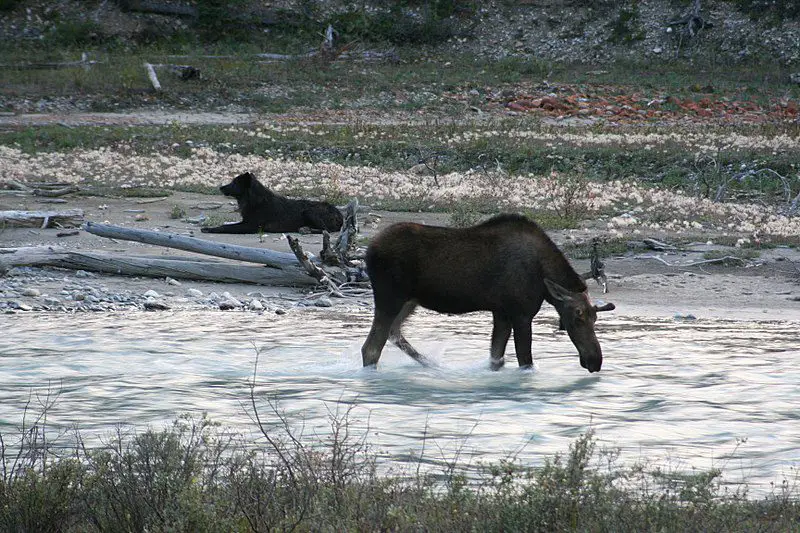Photo by Marine Harvest Canada
Originally seen in Fish’n Canada’s Week in Review
The relationship between wolves and moose is far from cordial, however, a recent study out of Minnesota shows one way in which they benefit from each other’s company.
The study was conducted around the Grand Portage Band of Lake Superior Chippewa Indian Reservation in Northeastern Minnesota after it was found that nearly 23% of the collared moose dying in the area were infected by a parasite known as Parelaphostrongylus tenuis, a brain worm parasite transmitted by white-tailed deer.
The study was intended to discover the linkages between these moose and deer populations and discover why some areas have such frequent transmission of the brain worm parasite.
After capturing and tracking moose, deer, and wolves in the area for a two-year study period, the crew ended up with some very interesting findings.
The first was that deer and moose populations were overlapping significantly in the spring and summer – the time when brain worm transmission is at its height. Secondly, and more importantly, however, was that areas with high wolf pressure seemed to see much greater segregation between the two species, leading to far fewer transmissions.
“We often think of wolves as bad news for moose because they kill a lot of calves,” said the aptly-named principal investigator Tiffany Wolf, DVM, Ph.D., an assistant professor in the Department of Veterinary Population Medicine in an interview with Phys.org. “But this suggests that wolves may provide a protective benefit to adult moose from a parasite-transmission perspective. Because brainworm is such an important cause of adult moose mortality in Minnesota, we can now see that the impact of wolves on moose is a bit more nuanced.”
This excerpt was taken from Fish’n Canada’s Week in Review, our weekly recap of all things relevant to the Canadian outdoorsman. For more stories like this, check out the full article below and tune back in every Friday to catch up on everything you missed!









